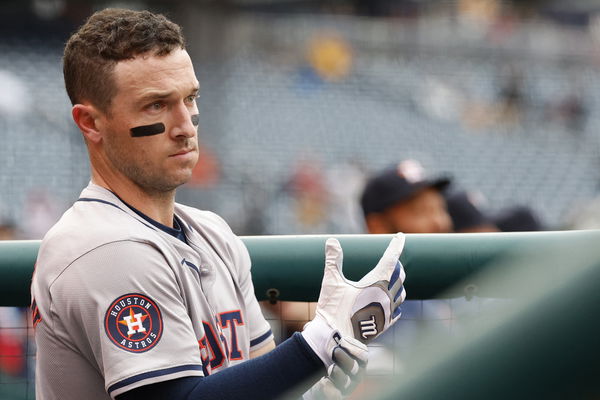

The National League Central was practically gift-wrapped for the Chicago Cubs. The St. Louis Cardinals have been oddly passive. The Milwaukee Brewers lost their best hitter (Willy Adames) and their best pitcher (Devin Williams). The Cincinnati Reds, while improving, are still navigating small-market financial constraints. The Pittsburgh Pirates? Well, they’re still the Pirates. This was the Cubs’ moment to take control. Instead, they blinked.
Chicago had a chance to land Alex Bregman, the kind of player who not only raises a team’s ceiling but also brings a winning mentality. Instead, they let the opportunity slip through their fingers. The Cubs, a franchise valued at nearly $5 billion, should be flexing their financial muscle, not sitting on their hands while smaller-market teams outspend them.
ADVERTISEMENT
Article continues below this ad
Cubs cutting payroll instead of pushing in
“They are the Cubs. They’re in a winnable division. They haven’t won in a while. People are ready to jump on board, and they just made one deal,” said ESPN’s Tim Kurkjian on the Baseball Tonight podcast. “They didn’t make enough deals in order to be the Chicago Cubs.” And that’s the frustrating part—this wasn’t about taking an unnecessary risk. This was about capitalizing on an obvious opportunity, and they let it slip.
For all the talk of being a big-market team, the Cubs’ actions this offseason tell a different story. Their payroll for 2025 is projected to land somewhere between 12th and 14th in MLB at roughly $186 million—down about $30 million from last year. They cut costs by letting Cody Bellinger walk and didn’t reinvest aggressively. Meanwhile, even the Tampa Bay Rays, a notoriously low-budget team that was displaced by a hurricane, have spent more net money this winter than the Cubs. That’s inexcusable.

USA Today via Reuters
Jun 13, 2024; St. Petersburg, Florida, USA; Chicago Cubs first baseman Cody Bellinger (24) hits a base hit against the Tampa Bay Rays in the first inning at Tropicana Field. Mandatory Credit: Nathan Ray Seebeck-USA TODAY Sports
They did make a couple of solid moves—trading for Kyle Tucker was a major win, and adding Ryan Pressly helps stabilize the bullpen. But it still feels like they’re one key piece short. Bregman, a two-time World Series champion, would have solidified Chicago’s infield alongside Dansby Swanson, Nico Hoerner, and Michael Busch. More importantly, he would have brought championship experience to a team that still lacks a proven postseason core.
But $40 million a year was too rich for Chicago’s blood? That’s a hard pill to swallow when ownership is raking in revenue.
ADVERTISEMENT
Article continues below this ad
What’s your perspective on:
Are the Cubs wasting their big-market status by not spending like a true contender?
Have an interesting take?
No more excuses: the internal talent must deliver
If the Cubs aim to stay competitive without Alex Bregman on board they’ll have to see development from their existing players. Michael Busch, who comes in from the Dodgers, brings with him the potential for power hitting that could make him a key player in the middle of the batting order. However, he needs to demonstrate a consistent performance against MLB pitchers. While Pete Crow Armstrong’s exceptional defensive skills are unquestionable, if he enhances his batting skills further, he could become a game-changer at the forefront of the lineup.
On the pitching side, Jordan Wicks and Javier Assad must step up in the rotation to ease the burden on Justin Steele and Jameson Taillon. The bullpen also needs a surprise contributor, whether it’s a prospect like Ben Brown or a rebound season from an established arm. Craig Counsell’s arrival as manager should help maximize player development, but ultimately, the Cubs’ chances hinge on young talent taking a leap. If they don’t, their rivals will be ready to capitalize.
ADVERTISEMENT
Article continues below this ad
With the division still up for grabs, it’s on the team’s internal development and breakout performances to make the difference. If they adjust and improve from within, the Cubs can still secure their place at the top. And if they fall just short in 2025, they’ll know exactly why.
ADVERTISEMENT
ADVERTISEMENT
ADVERTISEMENT
ADVERTISEMENT


Are the Cubs wasting their big-market status by not spending like a true contender?